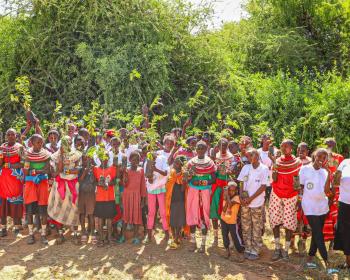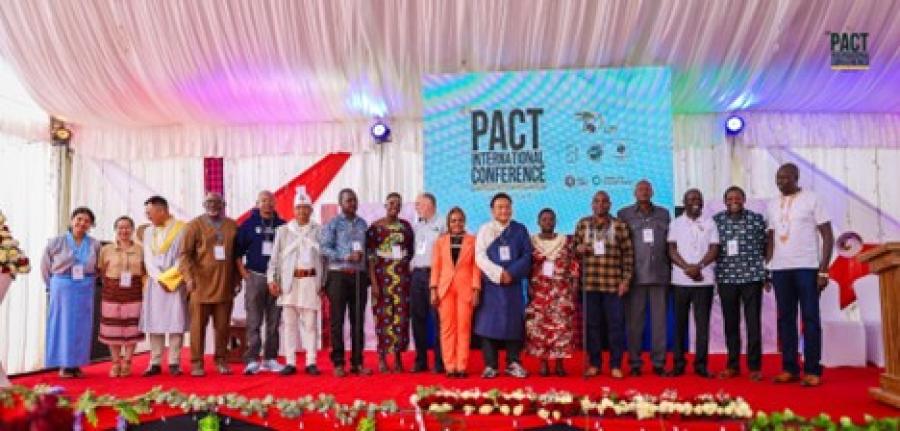Michael Lolwerikoi, representing the Samburu people of Kenya, and Ellen Lutz, executive director of Cultural Survival, presented Cultural Survival’s report, “When the Police are the Perpetrators,” to the UN Special Rapporteur on the situation of human rights and fundamental freedoms of indigenous people during the meeting of the UN Permanent Forum on Indigenous Issues in New York, April 18-30. The 32-page report, written by Cultural Survival’s Global Response program director Paula Palmer and human rights expert Chris Allan, documents violent attacks by Kenyan police forces on Samburu villages between February 2009 and January 2010 in which Samburu people were killed, wounded, raped, displaced, robbed and impoverished. The Cultural Survival report calls on Kenyan authorities to withdraw police forces from the northern pastoralist region, investigate and prosecute human rights abuses committed by Kenyan police officers against the Samburu people, implement police reforms, and authorize the traditional pastoralist elders to undertake a community-based process of conflict resolution and peace building among the pastoralist groups. Read the full report here.
No further full-scale police assaults on Samburu communities have occurred since Cultural Survival’s research delegation returned from Kenya in late January. The report has been sent to Kenya’s president, prime minister, and cabinet ministers, as well as to the United States and other embassies in Nairobi and to Kenya’s human rights commissions.
On behalf of the Samburu people, Michael Lolwerikoi wrote a letter of appreciation to Cultural Survival (see the whole letter here), stating in part,
" …We convey our gratitude to you and your team of experts for your visit to our pastoral region of Samburu East. We salute you for your courageous decision to lead a team to come and be with us and share our pains and traumatic experiences which we encountered through hands of powerful aggressors. At a such time as this: time of agony, hopelessness and despair you came from a far country to meet us, sit with us, listen to our sad stories, witnessed the emptiness of our homes, and shared the tears and the sorrows of our pastoral community. Thank You!
…Your visit in the month of January 2010 has enriched our oral history and culture. As a result of brutal attack which happened to us in 2009 and 2010, we were literally left with nothing. Our only source of livelihood and identity, the cattle were taken away from us. Our houses which symbolize our cultural identity were burnt into ashes. Our women were tortured and abused. Our men were beaten, injured and others killed. Our young children disappeared mysteriously.
… We thank you for your documentation. We thank you for writing down the fatal impact and the confiscations of properties, the attack of our beloved ones, and the deliberate attack of our culture and identity. Through the power of this documentation, the Global world is now aware of our current limbo state.
…We thank you for all the correspondences that have been submitted to those in authority. We hope they have eyes to see and ears to listen and the hearts of compassion and humane. We thank you for making all these appeals on our behalf."



